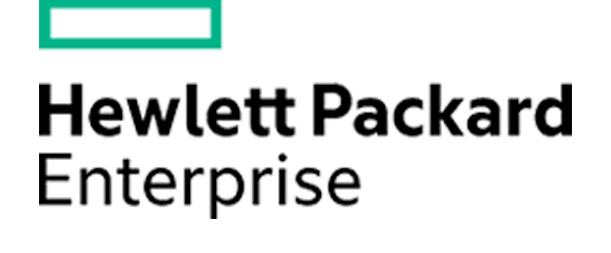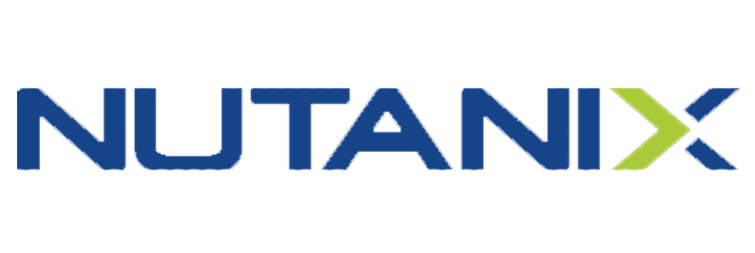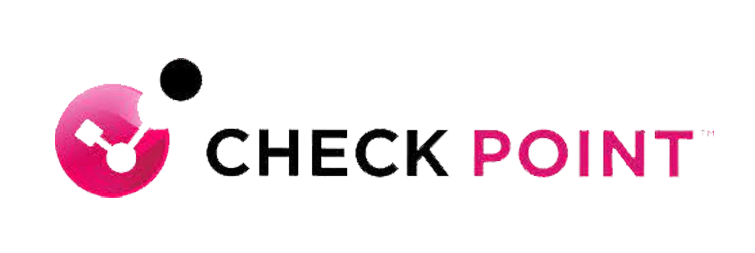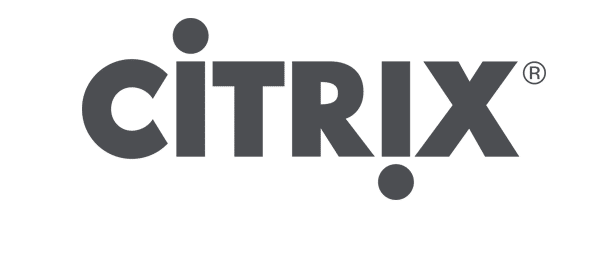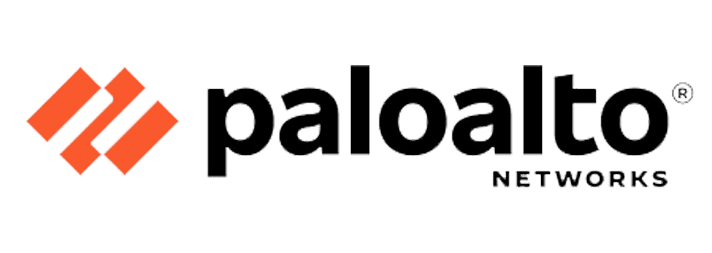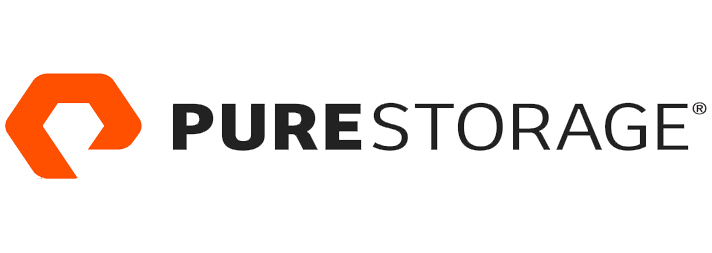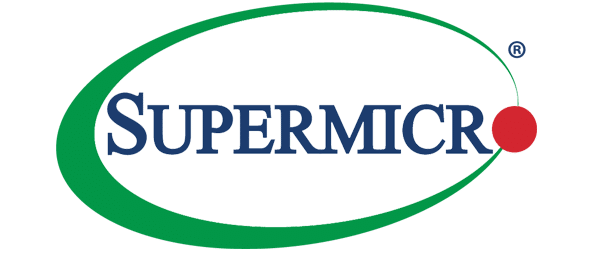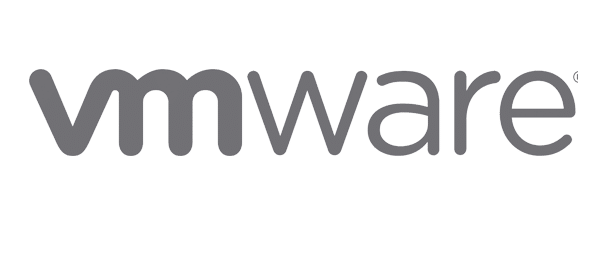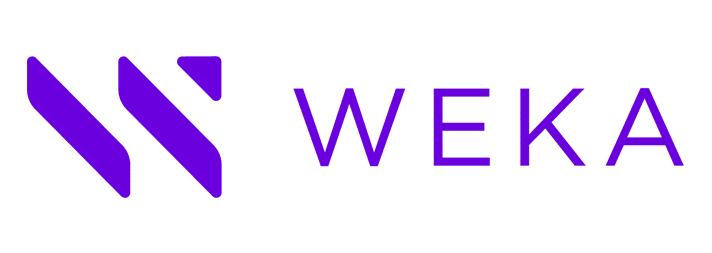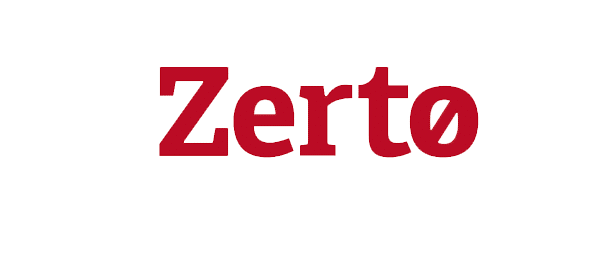A Journey into Healthcare IT Solutions
A Journey into Healthcare IT Solutions
Healthcare is a complex field and, within it, healthcare IT can be one of the most important — but most challenging — aspects. From infrastructure to backup and recovery, to growing volumes of data, and ever-changing nuances of data management, changing technology has IT teams in healthcare spread thin.
What’s the key to managing these never-ending changes? Healthcare IT partners such as ComportSecure. Let’s dig in.

Table of Contents
- How Healthcare IT Solutions for Data Storage Put Patient Care First
- The Expansion of “as a Service” Models Advances Healthcare IT Solutions
- Flexible Healthcare IT Security Strategies Aid Compliance and Protection
- Healthcare IT Partners Simplify Digital Transformation
- Healthcare IT Solutions Propelling the Industry Forward
- Continue Your Journey with ComportSecure
Bringing in a dedicated healthcare IT partner is the key to managing the complexities of healthcare IT. We provide technology expertise and people power to help internal IT teams modernize their environment. With our Anything as a Service (XaaS) offerings, we can do the heavy lifting of providing healthcare IT solutions that can be tailored to meet any business need, without IT teams needing to divert attention even more.
Keep reading for an overview of the breadth of healthcare IT solutions ComportSecure provides and the reputable technology brands we partner with to unburden your internal teams and make your systems better meet your needs, even as they change.
Summary
Healthcare IT is a complicated field, and the many components of maintaining the IT systems of a healthcare organization can put undue strain on internal IT teams. By collaborating with a healthcare IT partner such as ComportSecure, IT leaders can ensure their environments are modernized, their data is secure, and their teams can focus on strategic business initiatives.
How Healthcare IT Solutions for Data Storage Put Patient Care First
Healthcare organizations are responsible for vast amounts of data, from electronic health records (EHR) and clinical trial data to administrative and claims data. With such a high volume of information, care teams benefit from a flexible strategy for healthcare data management to increase access to patient data and support an informed care plan.
Providing the best patient care possible is at the core of healthcare data management. When clinicians have quick and easy access to data, they are able to make more informed decisions to help patients with appropriate treatments. Today’s highly-available, high-performance storage systems make this level of care possible.
Over time, healthcare organizations have come to store a wide variety of data types, which require higher volumes of digital storage. The prevalence of technology that produces larger files, such as X-rays and MRIs, and increasingly strict regulations around protected health information (PHI) have changed the approach to today’s healthcare data management.
Effective data management and storage solutions allow organizations to better access, analyze, and utilize PHI, which improves patient care with data-driven insights for treatment and aids decision-making for larger business initiatives.
Traditional methods of healthcare data management have been functional in the past, but in order to continue thriving, organizations must transition to high-performance storage systems. Cloud data storage provides an advanced method that can meet evolving data management requirements for healthcare organizations of all sizes. With cloud data storage, organizations can:
- Scale data storage needs as the organization grows, without overprovisioning
- Secure data to eliminate unauthorized access while retaining shareability
- Comply with a variety of regulations, including HIPAA
- Free up internal IT teams to focus on strategic changes and innovation
As more organizations rethink their healthcare IT services, data management and cloud storage capabilities will be increasingly relevant factors in decision-making. Many of today’s modern solutions, like cloud storage, exist “as a Service,” which allows healthcare IT companies to provision the storage they need in a flexible, scalable manner.
Summary
Healthcare organizations must create, store, organize, and secure large quantities of data for future use. In addition, this data needs to be readily accessible to clinicians to help inform patient care decisions. Having a scalable strategy for data management in healthcare for this purpose can create better patient and organizational outcomes. As technology and regulations change, cloud data storage and highly-available, high performance storage systems can meet changing requirements for healthcare organizations. Back to top.
The Expansion of “as a Service” Models Advances Healthcare IT Solutions
Of the many healthcare IT solutions that exist, healthcare organizations are increasingly opting to use an “as a Service” model, which allows them to focus their energy on the solutions that are most aligned with their short- and long-term goals. Rather than having internal teams spend their valuable time on tasks like infrastructure maintenance and routine backups, as a Service models allow teams to focus on strategic business initiatives.
From Infrastructure as a Service, to Backup as a Service, to Disaster Recovery as a Service, ComportSecure’s 40 years of healthcare expertise helps your organization modernize an IT environment that works for your business goals.
Infrastructure as a Service (IaaS) Provides Flexibility
Healthcare infrastructure systems are often complex, in large part due to ever-changing technological and regulatory requirements. Staying up to date with infrastructure advancements can be a full-time job. IT teams have enough on their plates with day-to-day operations, without managing the expensive, time-consuming, on-premise infrastructure systems used to maintain healthcare organizations.
Often, there are negative associations with the time and expense of infrastructure upgrades, but we’re here to tell you that those are just myths, and upgrades can provide more cost-effective, agile systems over time. Infrastructure as a Service (IaaS) can be a cost-effective, secure solution that allows healthcare companies to switch from legacy infrastructure to modern systems that allow them access to updated technology.
Upgrading infrastructure can be costly, but not upgrading will be more expensive over time as outdated systems require more maintenance and cause performance and security concerns. More importantly, IaaS provides healthcare IT companies with both managed and hybrid cloud options that can be paired with on-premise infrastructure, giving healthcare organizations the control they need today, with the flexibility to grow in the future. With proven security features like 24/7/365 surveillance and monitoring, on-call support, and Tier IV data centers, healthcare data will be well protected, even when stored in the cloud.
Infrastructure overhauls can be overwhelming, but patching solutions together as needs arise leaves gaps between them, increasing an organization’s vulnerability to data breaches and limiting the potential technology has to help businesses operate smoothly. Using modern technology through IaaS will enhance the availability, compliance, and security of your critical systems with less maintenance and a lower total cost of ownership over time.
Summary
IT infrastructure provides the foundation for healthcare organizations to scale, but it can be costly to purchase hardware upfront and maintain it over time. Infrastructure as a Service (IaaS) is a pay-as-you-go option that can be tailored to any company by equipping IT teams with top-tier technology at a lower total cost of ownership. IaaS empowers IT teams with instant flexibility to meet the demands they face today. Back to top.
Data Backup and Recovery Centralizes Data Management
 Healthcare IT companies produce — and need to store and access — large quantities of data. As the industry has changed, expectations for data have changed. Organizations and users alike expect rapid access to data with less downtime, while managing higher volumes of data continues to take longer and require more space. Legacy systems make meeting these user expectations challenging and put health data at risk for breaches.
Healthcare IT companies produce — and need to store and access — large quantities of data. As the industry has changed, expectations for data have changed. Organizations and users alike expect rapid access to data with less downtime, while managing higher volumes of data continues to take longer and require more space. Legacy systems make meeting these user expectations challenging and put health data at risk for breaches.
Healthcare organizations are increasingly being targeted by threat actors, because PHI is incredibly valuable. From 2018 to 2021, healthcare organizations experienced an 84% increase in data breaches. With Backup as a Service (BaaS) and data recovery, ComportSecure can take on the complexities of data backup while protecting your data from attacks.
Data backup and recovery is easier than ever before with modern systems like cloud backup and flash-optimized arrays, which have been revolutionizing healthcare data storage and providing increased performance and security to organizations.
Modern backup and recovery solutions have many benefits, including centralized management, rapid speeds and availability, and advanced security. No matter where data is stored, modern storage solutions combine hardware, software, and network for an improved user experience. With 99.9999% availability and lightning-fast speeds, advanced storage options such as HPE Nimble ensure rapid data management. Data is also protected with always-on security, which supports HIPAA compliance.
In addition to fast, rapid storage, modern solutions are scalable, giving healthcare IT companies the data storage they need, regardless of organizational changes, without downtime. With fewer costs associated with cloud-based storage — no hardware costs, no server maintenance labor costs, and no temperature control costs — data backup and recovery solutions can also be less expensive than legacy on-premise systems depending on the volume of data.
As system uptime and availability expectations change, healthcare IT teams are spending more time and energy on data backup and recovery. ComportSecure BaaS can help your IT teams reclaim their time so they can spend it on more engaging, strategic initiatives that move your business forward.
Summary
Data storage is a persistent issue for healthcare IT teams because of the large volumes of information that must be stored according to strict regulations. Embracing a cloud or hybrid cloud data storage solution resolves this challenge by providing rapid storage provisioning that is scalable on-demand. Back to top.
Disaster Recovery as a Service (DRaaS) Gets Critical Systems Back Online Faster
If there is one common theme across healthcare IT solutions, it’s that healthcare creates large amounts of data. This data, however, can be vulnerable to any number of events that could damage or destroy it, from hardware failures and software bugs to power outages and natural disasters. In addition to these run-of-the-mill disasters, healthcare organizations are prime targets for malicious activities, because of the value of PHI. In a moment of disaster, healthcare data still needs to be accessed, regardless of what went wrong, without exorbitant costs to retrieve it.
Traditional data recovery methods fall short of modern requirements. These options — a hot site, which duplicates an entire environment; a cold site, which establishes a new environment after a disaster; or a warm site, which combines the two — are not adaptable, fast, or cost-effective solutions, all of which are necessary in the moments immediately following a disaster.
Instead, Disaster Recovery as a Service (DRaaS) is a modern, cloud-based solution that is easy to establish and maintain, creating increased resilience and cost savings for healthcare organizations. Disaster recovery today requires a combination of backup and replication for the most agile recovery: backup copies information to media like disc-based storage, while replication copies information via network to another storage system, likely in a cloud solution provider.
Using a combination of backup and replication allows healthcare organizations to get their system critical operations up and running quickly after a disaster. And, with private, managed, and hybrid cloud DRaaS solutions, healthcare organizations can maintain the flexibility and control they need in the face of disaster.
Summary
Disaster recovery helps IT teams plan for the worst-case-scenario to ensure business continuity in the face of an unexpected event. Modern Disaster Recovery as a Service (DRaaS) solutions combine backup and replication for effective data recovery. Partnering with a dedicated healthcare IT provider brings internal IT teams peace of mind in the face of extreme events. Back to top.
Flexible Healthcare IT Security Strategies Aid Compliance and Protection
Cybersecurity in healthcare is crucial because these organizations handle sensitive personal health information (PHI) that can be valuable to malicious actors. Cyberattacks on healthcare organizations can result in data breaches, financial losses, and loss of trust from patients. To stay protected, healthcare organizations must continually evolve their approach to cybersecurity and implement a multifaceted strategy that includes people, processes, and technology solutions.
By partnering with a healthcare IT provider, organizations have expert guidance in developing a comprehensive cybersecurity plan and ensuring that appropriate measures are taken to protect PHI. Comport grew our roots in healthcare from the very start. Our four decades of healthcare IT experience benefits customers with proactive planning that leads to an advanced state of cybersecurity.
Summary
Be proactive about cybersecurity measures to get ahead of malicious actors, especially when managing sensitive information. Lean on healthcare IT providers for guidance to create a tailored cybersecurity strategy that’s realistic to execute. Back to top.
Healthcare IT Partners Simplify Digital Transformation

Leaders in technology and information systems at healthcare organizations are responsible for many aspects of organizational success, from securing remote connections, to patient wayfinding, to provider experiences with technology portals. With so many strategic initiatives and responsibilities to attend to, routine management should not be at the forefront of the minds of CTOs or CIOs at healthcare organizations.
Instead, collaborating with a healthcare IT partner can allow them to focus on strategic, large-scale work. An effective healthcare IT partner understands both technology and healthcare, which can benefit CTOs and CIOs greatly. They can strategize, design, implement, and manage a variety of meaningful changes to healthcare technology that can meet short- and long-term organizational goals. In short, a healthcare IT partner can bring a variety of tangible benefits to your organization.
ComportSecure can meet all your healthcare IT needs. With 40 years of experience in our field and deep expertise rooted in helping healthcare organizations of all sizes, our in-house technologists understand not only the technology, but also the unique context of healthcare IT. Our expertise ranges across a number of healthcare IT services and solutions, including data center modernization and consolidation, network improvements, data management, security protections, and healthcare IT governance, which allow us to partner with your internal IT teams to improve your overall IT ecosystem and better align to the needs of the business.
The world of healthcare is changing rapidly — are you ready for it? ComportSecure can help you stay ahead of the curve with digital transformation.
Summary
Digital transformation in healthcare is a complex idea that can be tough to sell internally without the right support. The most successful way to move forward with modernizing IT environments is to source a dedicated healthcare IT partner, such as ComportSecure, to plan a roadmap for optimization and provide the healthcare technology expertise required to implement solutions. Back to top.
Healthcare IT Solutions Propelling the Industry Forward
The technological and regulatory nuances of healthcare organizations are vast, and the breadth of healthcare IT solutions that can address those needs is limitless. With so many options and so many requirements, how do healthcare IT companies navigate the different solutions and their benefits?
In many cases, organizations look at their peers and examine the decisions they have made and how they have functioned before moving forward with a healthcare IT solution or service for their company. The below examples of Nutanix and Aruba wireless will provide concrete ways healthcare organizations of all sizes are using modern healthcare IT solutions to benefit their patient and physician experiences.
Summary
Healthcare IT leaders must carefully consider potential solutions before implementing them. By reviewing numerous healthcare IT solutions and their impacts on peer organizations, healthcare organizations are better equipped to understand what solutions will best suit their needs. In particular, Nutanix and Aruba wireless are popular solutions among healthcare IT companies for delivering clinical systems in an optimized manner. Back to top.
 Nutanix Supports FQHCs
Nutanix Supports FQHCs
A specific healthcare center, clinic, or facility that qualifies for certain Medicare and Medicaid reimbursements is known as a federally qualified health center, or FQHC. These centers provide necessary healthcare to underserved individuals but are seeing an influx of patients that their technology cannot keep up with. Due to the rising demand, IT teams at these centers are often wary of making technological updates because downtime caused by interruptions would prevent individuals from receiving much-needed care.
Nutanix offers an easy, scalable solution that can modernize the healthcare infrastructure systems of FQHCs. Nutanix supports the electronic medical record systems that FQHCs already use and meets the security and legal compliance demands that are synonymous with healthcare. With remote access opportunities, Nutanix also allows FQHCs to keep up with changing user expectations and requirements.
FQHCs utilize Nutanix because it is easy to implement and manage with a hybrid cloud and central management system. As federally funded facilities, FQHCs must also be mindful of costs, both recurring expenses and large-scale investments in new infrastructure. With lower upfront costs and potential cost savings over time, Nutanix provides flexibility without sacrifice, regardless of budget.
Summary
FQHCs utilize Nutanix healthcare solutions because they offer easy, scalable ways to update healthcare infrastructure without downtime. Nutanix offers lower upfront and long-term costs, remote access capabilities, and easier implementation and management. Healthcare centers need flexible, affordable ways to maintain their infrastructure, and Nutanix can provide them. Back to top.
Aruba Solves Networking Challenges
Today’s healthcare environments are different than ever before. Users must increasingly be able to access networks from any device, from any location, and at any time, while maintaining the security and privacy of data and offering rapid transfer times. As the needs for networks change, many organizations are rethinking their networking solutions.
 Despite being a newer contender to climb into Gartner’s rankings, Aruba wireless is a networking solution that is rising in the ranks of popularity and efficacy in its field, particularly among healthcare organizations.
Despite being a newer contender to climb into Gartner’s rankings, Aruba wireless is a networking solution that is rising in the ranks of popularity and efficacy in its field, particularly among healthcare organizations.
First and foremost, many customers laud Aruba wireless for its “customer first, customer last” approach, which guides product development to better solve customer problems. That, combined with the fact that Aruba is owned by HPE, creates a high-quality, industry-leading product.
Within the product, Aruba wireless offers integrated security, scalable guest access, remote access enablement, network management, and asset tracking, among other advantages. These benefits create an all-encompassing tool that accommodates a variety of needs for end users. If traditional networking offers simple connectivity, Aruba wireless is an innovation platform that can improve your overall IT architecture.
Summary
Healthcare environments are changing rapidly, and their networks are increasingly expected to provide widespread access, increased data security, and rapid transfer times without sacrifice. Aruba wireless allows healthcare providers to keep up with the expectations of users. With customer-driven development and an industry-leading product, Aruba wireless is the go-to choice for healthcare organizations. Back to top.
Continue Your Journey with ComportSecure
As complex as healthcare is, there are ample opportunities to simplify it with modern healthcare IT solutions and a dedicated partner. By collaborating with ComportSecure, you will have a trusted partner that can provide you with insights and expertise, as well as people power, to update and maintain your healthcare IT systems.
From IaaS and backup to disaster recovery, modern technology services will propel your business operations and enhance the patient experience. We’re experts in the latest technology from trusted, reputable brands, and can help you choose the right combination of solutions and XaaS offerings for your business. Let us unburden your IT teams and improve your technology as your healthcare IT partner.
Bill Flatley, Field CTO for Healthcare
Bill is responsible for technical strategies and recommendations for Comport’s Healthcare clients. His extensive experience includes four healthcare systems in leadership roles supporting Clinical Applications, Digital Health, and Office of the CIO as the primary liaison between IT and the business.







